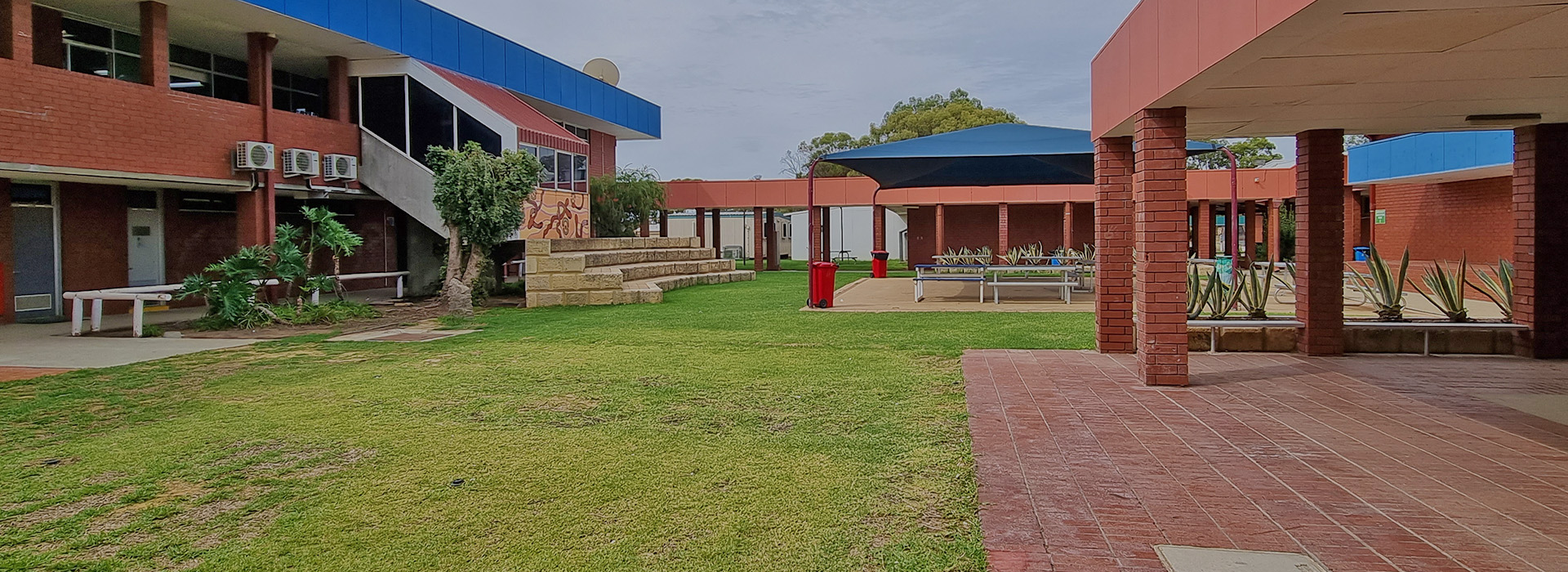
Senior ATAR Courses
The ATAR courses we offer face-to-face are dependent upon the number of students who choose those particular courses and can vary.

English ATAR
The English ATAR course focuses on developing students’ analytical, creative, and critical thinking and communication skills in all language modes, encouraging students to critically engage with texts from their contemporary world, the past, and from Australian and other cultures. Through close study and wide reading, viewing and listening, students develop the ability to analyse and evaluate the purpose, stylistic qualities and conventions of texts and to enjoy creating imaginative, interpretive, persuasive and analytical responses in a range of written, oral, multimodal and digital forms.
Mathematics Applications
This course focuses on the use of mathematics to solve problems in contexts that involve financial modelling, geometric and trigonometric analysis, graphical and network analysis, and growth and decay in sequences. It also provides opportunities for students to develop systematic strategies based on the statistical investigation process for answering statistical questions that involve analysing univariate and bivariate data, including time series data. The Mathematics Applications ATAR course is designed for students who want to extend their mathematical skills beyond Year 10 level, but whose future studies or employment pathways do not require knowledge of calculus. The course is designed for students who have a wide range of educational and employment aspirations, including continuing their studies at university or TAFE.
Human Biology ATAR
The Human Biology ATAR course gives students a chance to explore what it is to be human—how the human body works, the origins of human variation, inheritance in humans, the evolution of the human species and population genetics. Through their investigations, students research new discoveries that increase our understanding of human dysfunction, treatments and preventative measures.
Practical tasks are an integral part of this course and develop a range of laboratory skills; for example, biotechnology techniques. Students learn to evaluate risks and benefits to make informed decisions about lifestyle and health topics, such as diet, alternative medical treatments, use of chemical substances and the manipulation of fertility.
Health Studies ATAR
In this ATAR course students explore health as a dynamic quality of life. They examine the impact of social, environmental, economic and biomedical determinants on health and their collective contribution to health disparities, as well as exploring approaches to address barriers which prevent groups from experiencing better health. Students apply inquiry skills to examine and analyse health issues, develop arguments and draw evidence-based conclusions. The course also provides students with opportunities to develop skills that will enable them to pursue careers in health promotion, research or community health care.
Business Management and Enterprise ATAR
The Business Management and Enterprise ATAR course focuses on business planning, marketing and growth, and opportunities provided for business by technology and the global environment. Students examine factors that drive international business developments, the features and traits of successful management, and how businesses operate strategically to maximise business performance in a global setting. Through the consideration of real businesses and scenarios, students develop knowledge, understanding and skills that enable them to apply financial and business literacy, analyse business opportunities, evaluate business performance, identify and create opportunities, and make sound, ethical business decisions within a business environment. The course equips students to participate proactively in the world of business, behave responsibly and demonstrate integrity in business activities.
Chemistry ATAR
The Chemistry ATAR course equips students with the knowledge, understanding and opportunity to investigate properties and reactions of materials. Theories and models are used to describe, explain and make predictions about chemical systems, structures and properties. Students recognise hazards and make informed, balanced decisions about chemical use and sustainable resource management. Investigations and laboratory activities develop an appreciation of the need for precision, critical analysis and informed decision making.
This course prepares students to be responsible and efficient users of specialised chemical products and processes at home or in the workplace. It also enables students to relate chemistry to other sciences, including biology, geology, medicine, molecular biology and agriculture, and prepares them for further study in the sciences.










